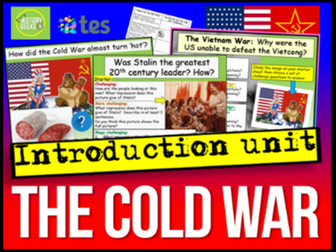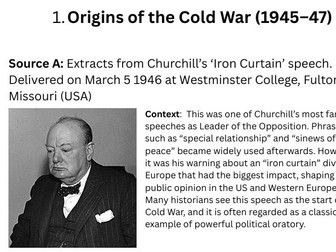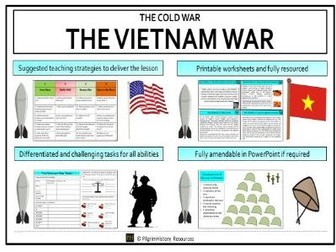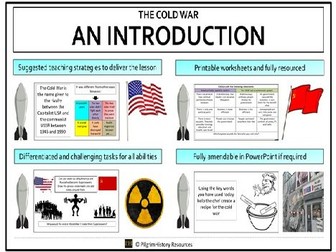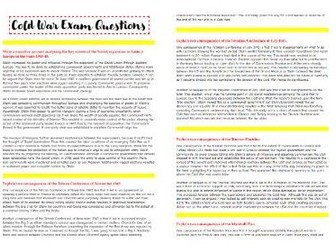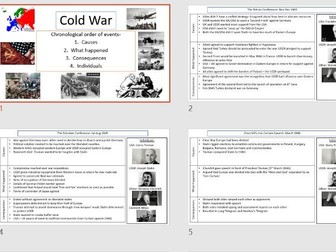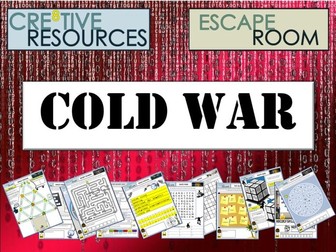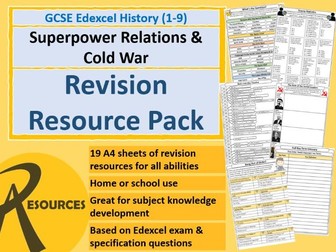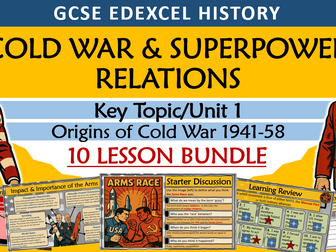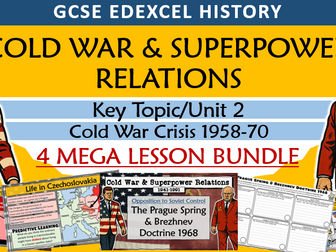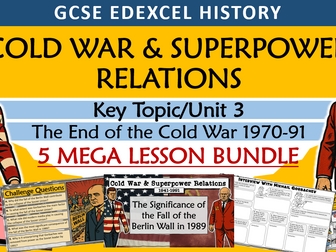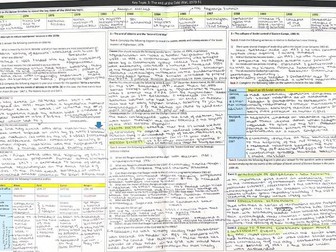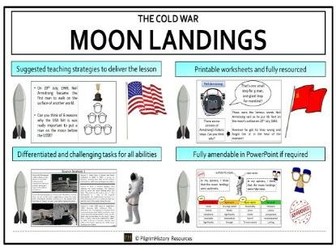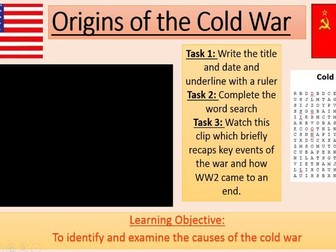Bundle
Cold War - Cold War Unit
9 HOURS - A mini unit of 9 x 1 hour lessons on the Cold War. Includes:
An introduction to the Cold War
Stalin and his leadership
The Atomic Bomb
The Berlin Blockade
Soviet expansion, tactics and consequences
The Vietnam War
The Cuban Missile Crisis
The My Lai Massacre
Chairman Mao and his leadership
Each lesson includes a detailed PowerPoint with accompanying worksheets, source analysis, GCSE-style question practice, clip questions and differentiated activities, starter sheets and much more. Created by an experienced HoD in a UK secondary school.
Who are EC Resources?
EC Resources are a group of teachers who work together to create easy to use, high quality and editable lessons and units of work. We have created lessons for The Bank of England, The Children’s Commissioner, MACS Charity, The British Legion, Tes, LikeToBe Careers, the Criminal Cases Review Commission (UK Gov) and have also completed PSHE and Citizenship commissions for schools across the UK.
